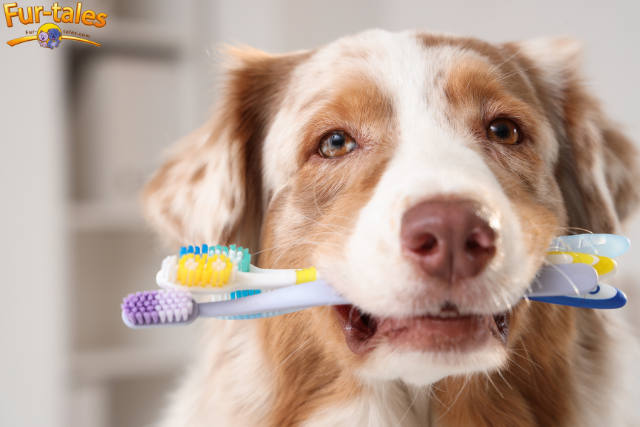
Why Dog Teeth Cleaning Matters
Your dog’s wagging tail, wet nose, and eager eyes might get all the attention—but there’s one part of their body that’s often overlooked: their teeth. While many pet parents focus on grooming, exercise, and nutrition, dental care is just as essential for a dog’s overall health.
Neglecting your dog’s oral hygiene can lead to bad breath, painful infections, tooth loss, and even serious health problems that affect their heart, liver, or kidneys. The good news? Regular dental care can prevent these issues and improve your dog’s quality of life.
In this guide, we’ll explore why dog teeth cleaning matters, the risks of poor dental hygiene, how to maintain your dog’s oral health, and when professional intervention is necessary.
The Dangers of Ignoring Dental Health
Plaque and Tartar Buildup
Dogs naturally accumulate plaque on their teeth after meals. If not removed, plaque hardens into tartar, which can irritate gums and harbor bacteria.
Periodontal Disease
Up to 80% of dogs over age 3 have some degree of periodontal disease, a serious condition affecting the gums and bones around the teeth. It starts as gingivitis and can lead to tooth loss if untreated.
Chronic Pain and Discomfort
Dogs are masters at hiding pain. What may look like moodiness or appetite changes could actually be tooth pain or infected gums.
Organ Damage from Oral Bacteria
Bacteria from the mouth can enter the bloodstream and damage major organs—especially the heart, kidneys, and liver. This condition is known as bacteremia, and it poses a serious health threat.
Benefits of Regular Teeth Cleaning for Dogs
Healthier, Longer Life
By preventing infections and inflammation, good dental hygiene supports a dog’s overall wellness and longevity.
Pain-Free Eating and Chewing
Clean teeth mean your dog can chew food and toys comfortably—crucial for digestion and mental stimulation.
Fresher Breath
No one likes “dog breath.” Regular cleaning reduces odor-causing bacteria, making those puppy kisses more pleasant.
Lower Veterinary Costs
Preventative dental care reduces the need for expensive treatments like extractions or advanced periodontal surgeries down the line.
Signs Your Dog May Have Dental Issues
If you notice any of the following, it’s time to take a closer look at your dog’s dental health:
- Bad breath (halitosis)
- Red, swollen, or bleeding gums
- Yellow or brown tartar on teeth
- Loose or missing teeth
- Pawing at the mouth or difficulty chewing
- Drooling excessively
- Loss of appetite or weight
How to Clean Your Dog’s Teeth at Home
Use a Dog-Safe Toothpaste
Never use human toothpaste—it contains xylitol or fluoride, which are toxic to dogs. Instead, use enzymatic dog toothpaste in flavors they enjoy (like poultry or peanut butter).
Invest in a Good Toothbrush
Use a dog-specific toothbrush or a finger brush for better control, especially for small breeds.
Create a Calm Environment
Start slowly and gently. Introduce brushing as a positive routine with treats and praise.
Brush Regularly
Aim for daily brushing, but even brushing 3 times a week can make a significant difference.
Other At-Home Dental Care Options
Dental Chews
Chewing helps naturally scrape plaque off teeth. Look for VOHC-approved chews, which meet dental health standards.
Dental Wipes
These are an alternative for dogs who dislike brushing. While less effective than brushing, they help reduce plaque.
Water Additives
Some formulas can be added to your dog’s water to reduce bacteria and improve breath.
Dental Diets
Certain kibble is designed to scrub teeth while chewing and can support oral health.
Professional Dog Teeth Cleaning
Even with consistent home care, professional cleanings are sometimes necessary.
What to Expect
A vet will perform a thorough cleaning under anesthesia. This includes:
- Scaling to remove plaque and tartar
- Polishing the enamel
- Dental x-rays to assess root health
- Tooth extraction if necessary
How Often Is It Needed?
Most dogs benefit from professional cleanings once a year, but frequency depends on your dog’s breed, age, and oral health.
Dental Care for Puppies vs. Senior Dogs
Puppies
Start early to get your dog used to the brushing routine. Puppy teeth don’t require intensive care but getting into the habit is key.
Seniors
Older dogs may have more plaque or existing dental issues. Handle their mouths gently, and consult a vet before starting a brushing routine.
Breeds Prone to Dental Problems
Some breeds are more susceptible to dental issues due to mouth shape or tooth crowding. These include:
- Small breeds like Chihuahuas, Yorkies, and Dachshunds
- Flat-faced breeds like Bulldogs, Pugs, and Shih Tzus
- Toy breeds due to tightly spaced teeth
These dogs may require more frequent cleanings and dental checkups.
Tips to Make Dental Care Easier
- Start slow and be patient
- Use tasty toothpaste your dog loves
- Incorporate brushing into your daily routine
- Reward your dog afterward with play or a small treat
- Ask your vet for brushing demonstrations if you’re unsure
Image Sources Using Canva
